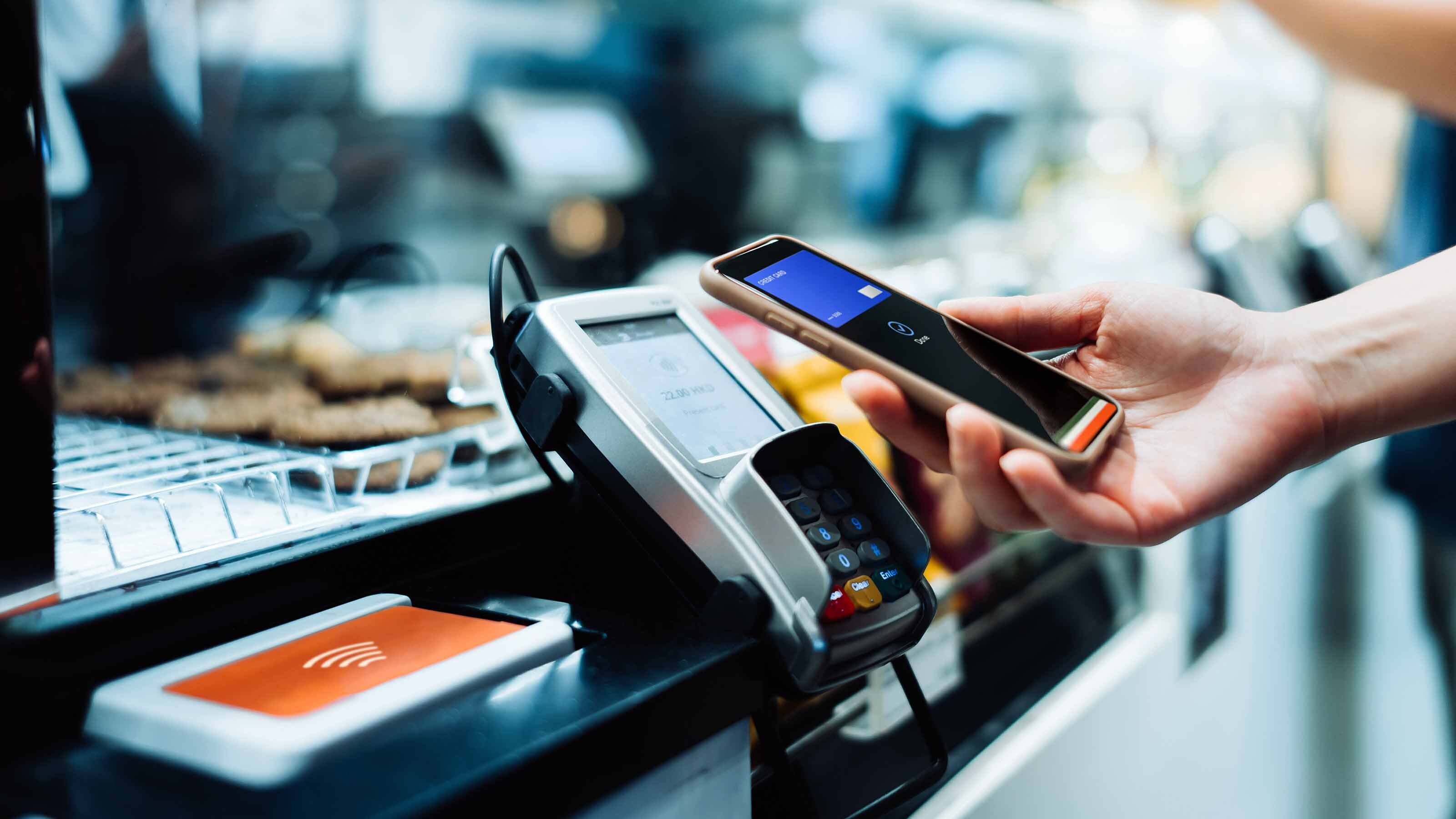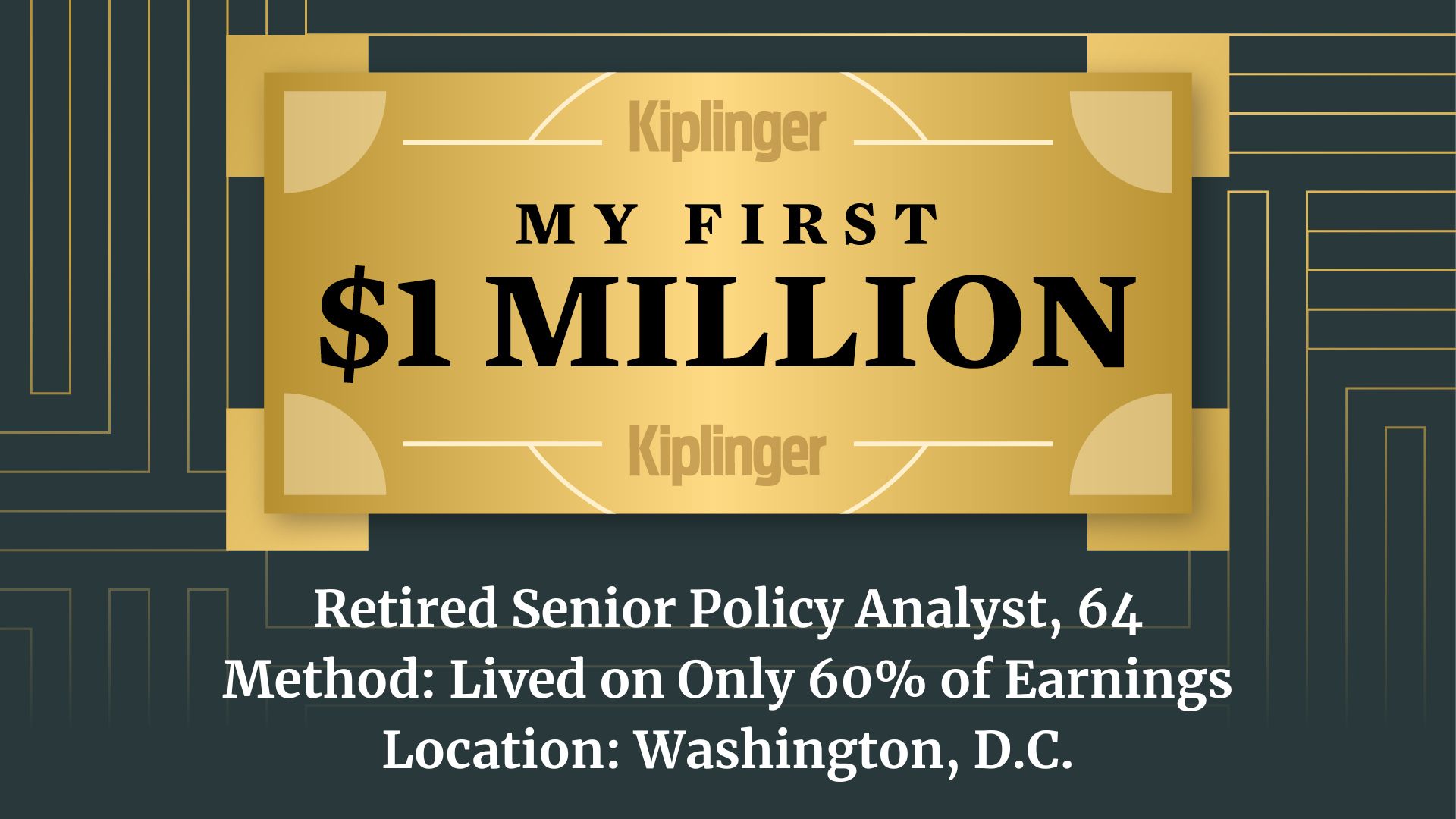What to Look Out for Using Digital Payments Like Venmo and Zelle
More and more Americans have abandoned paper money and coins, but there are risks to using peer-to-peer digital payments.


Profit and prosper with the best of Kiplinger's advice on investing, taxes, retirement, personal finance and much more. Delivered daily. Enter your email in the box and click Sign Me Up.
You are now subscribed
Your newsletter sign-up was successful
Want to add more newsletters?

Delivered daily
Kiplinger Today
Profit and prosper with the best of Kiplinger's advice on investing, taxes, retirement, personal finance and much more delivered daily. Smart money moves start here.

Sent five days a week
Kiplinger A Step Ahead
Get practical help to make better financial decisions in your everyday life, from spending to savings on top deals.

Delivered daily
Kiplinger Closing Bell
Get today's biggest financial and investing headlines delivered to your inbox every day the U.S. stock market is open.

Sent twice a week
Kiplinger Adviser Intel
Financial pros across the country share best practices and fresh tactics to preserve and grow your wealth.

Delivered weekly
Kiplinger Tax Tips
Trim your federal and state tax bills with practical tax-planning and tax-cutting strategies.

Sent twice a week
Kiplinger Retirement Tips
Your twice-a-week guide to planning and enjoying a financially secure and richly rewarding retirement

Sent bimonthly.
Kiplinger Adviser Angle
Insights for advisers, wealth managers and other financial professionals.

Sent twice a week
Kiplinger Investing Weekly
Your twice-a-week roundup of promising stocks, funds, companies and industries you should consider, ones you should avoid, and why.

Sent weekly for six weeks
Kiplinger Invest for Retirement
Your step-by-step six-part series on how to invest for retirement, from devising a successful strategy to exactly which investments to choose.
If you can’t remember the last time you paid cash for groceries or a cup of coffee, you’re not alone. More than 40% of Americans say they don’t use cash for any of their purchases in a typical week, up from 24% in 2015, according to Pew Research.
What’s more, many Americans have resigned themselves to a world without cash: Nearly 65% believe that it’s either likely or very likely that the U.S. will become a cashless society in their lifetimes, according to a Gallup poll conducted in 2022.
Multiple factors have led to a shift away from cash, including the increase in online shopping, particularly during the COVID-19 pandemic, and the growing use of self-checkout lanes at grocery and other retail stores.
From just $107.88 $24.99 for Kiplinger Personal Finance
Become a smarter, better informed investor. Subscribe from just $107.88 $24.99, plus get up to 4 Special Issues

Sign up for Kiplinger’s Free Newsletters
Profit and prosper with the best of expert advice on investing, taxes, retirement, personal finance and more - straight to your e-mail.
Profit and prosper with the best of expert advice - straight to your e-mail.
Technology has also played a role. Electronic payment devices have made it possible for even very small merchants, such as sellers at local farmers' markets, to accept digital payments.
Meanwhile, smartphone apps such as Zelle, Venmo, Apple Pay, and Cash App allow users to pay their babysitters or split a restaurant bill without opening their wallets. The shift has led to some profound changes in the retail and banking industry.
Some retailers no longer accept cash payments, while the number of ATMs has declined by 4% since 2019, according to Euromonitor International, a London-based research firm.
Misdirected Money
While transferring money via payment apps is convenient, the fact that you don’t have to do it in person increases the risk that you’ll send it to the wrong recipient.
In addition, scammers have targeted users of mobile payment apps by impersonating legitimate businesses seeking payment for a product or service. Others pretend to be a loved one needing cash to pay for an emergency. Another tactic is to send a text purportedly from your bank, claiming that your account has been compromised.
Some 13% of people who have used one of the most popular payment apps say they’ve been victimized by a scam, while 11% report that their accounts have been hacked, according to Pew Research. U.S. consumers lost $1.6 billion to payment app scams in 2021, an amount that’s projected to rise to $3 billion by 2026, according to ACI Worldwide, a payments software company.
These scams aren’t new, but they’re problematic for users of mobile payment apps. Once you transfer money, it’s difficult to get it back, even if you were scammed or accidentally sent it to the wrong recipient.
However, if a criminal hacks your P2P account (say, by stealing your user name and password and logging in from his or her device) and makes unauthorized transactions, you may have some legal protections.
Some lawmakers are pressuring the banks that own the Zelle network to reimburse customers who lose money due to payment fraud. It’s unclear, though, how such a plan would work and whether it would cover customers who lose money due to user error.
If you use payment apps, the Federal Trade Commission and the American Bankers Association offer these tips:
- Protect your account with multifactor authentication or a PIN.
- Confirm the name, e-mail, phone number or applicable identifier of your intended recipient before you transfer money.
- Don’t share bank authentication or verification numbers or your personal information with anyone who contacts you, even if the caller ID indicates it’s a familiar company.
- Set up alerts to notify you of transactions in your account.
Note: This item first appeared in Kiplinger's Personal Finance Magazine, a monthly, trustworthy source of advice and guidance. Subscribe to help you make more money and keep more of the money you make here.
Related Content
Profit and prosper with the best of Kiplinger's advice on investing, taxes, retirement, personal finance and much more. Delivered daily. Enter your email in the box and click Sign Me Up.

Block joined Kiplinger in June 2012 from USA Today, where she was a reporter and personal finance columnist for more than 15 years. Prior to that, she worked for the Akron Beacon-Journal and Dow Jones Newswires. In 1993, she was a Knight-Bagehot fellow in economics and business journalism at the Columbia University Graduate School of Journalism. She has a BA in communications from Bethany College in Bethany, W.Va.
-
 Dow Loses 821 Points to Open Nvidia Week: Stock Market Today
Dow Loses 821 Points to Open Nvidia Week: Stock Market TodayU.S. stock market indexes reflect global uncertainty about artificial intelligence and Trump administration trade policy.
-
 Nvidia Earnings: Live Updates and Commentary February 2026
Nvidia Earnings: Live Updates and Commentary February 2026Nvidia's earnings event is just days away and Wall Street's attention is zeroed in on the AI bellwether's fourth-quarter results.
-
 I Thought My Retirement Was Set — Until I Answered These 3 Questions
I Thought My Retirement Was Set — Until I Answered These 3 QuestionsI'm a retirement writer. Three deceptively simple questions helped me focus my retirement and life priorities.
-
 How You Can Use the Financial Resource Built Into Your Home to Help With Your Long-Term Goals
How You Can Use the Financial Resource Built Into Your Home to Help With Your Long-Term GoalsHomeowners are increasingly using their home equity, through products like HELOCs and home equity loans, as a financial resource for managing debt, funding renovations and more.
-
 How to Find Free Money for Graduate School as Federal Loans Tighten in 2026
How to Find Free Money for Graduate School as Federal Loans Tighten in 2026Starting July 1, federal borrowing will be capped for new graduate students, making scholarships and other forms of "free money" vital. Here's what to know.
-
 My First $1 Million: Retired Senior Policy Analyst, 64, Washington, D.C.
My First $1 Million: Retired Senior Policy Analyst, 64, Washington, D.C.Ever wonder how someone who's made a million dollars or more did it? Kiplinger's My First $1 Million series uncovers the answers.
-
 Money Monsters Under the Bed? Here's What You're Really Afraid Of
Money Monsters Under the Bed? Here's What You're Really Afraid OfWhen financial anxiety keeps you awake, money isn't usually the root cause of the problem. Identifying the real demons will help you sleep — and live — better.
-
 Finances Not Going Anywhere? These 3 Steps Can Help You Find Your North Star
Finances Not Going Anywhere? These 3 Steps Can Help You Find Your North StarIf you're overwhelmed by financial planning, a long list of to-dos won't help. Find clarity by focusing on steps built around what's most important to you.
-
 Is Life Insurance Taxable When It's Paid Out?
Is Life Insurance Taxable When It's Paid Out?You received a big check from your loved one's life insurance policy. Will the IRS be expecting a check from you now?
-
 Before You Go to Costco, Try This Grocery Strategy First
Before You Go to Costco, Try This Grocery Strategy FirstA simple shift in how you plan meals could help you spend and waste less.
-
 Are You Making These 3 Savings Mistakes?
Are You Making These 3 Savings Mistakes?Avoiding these common mistakes can help you build a foundation of wealth while not leaving thousands of dollars on the table.